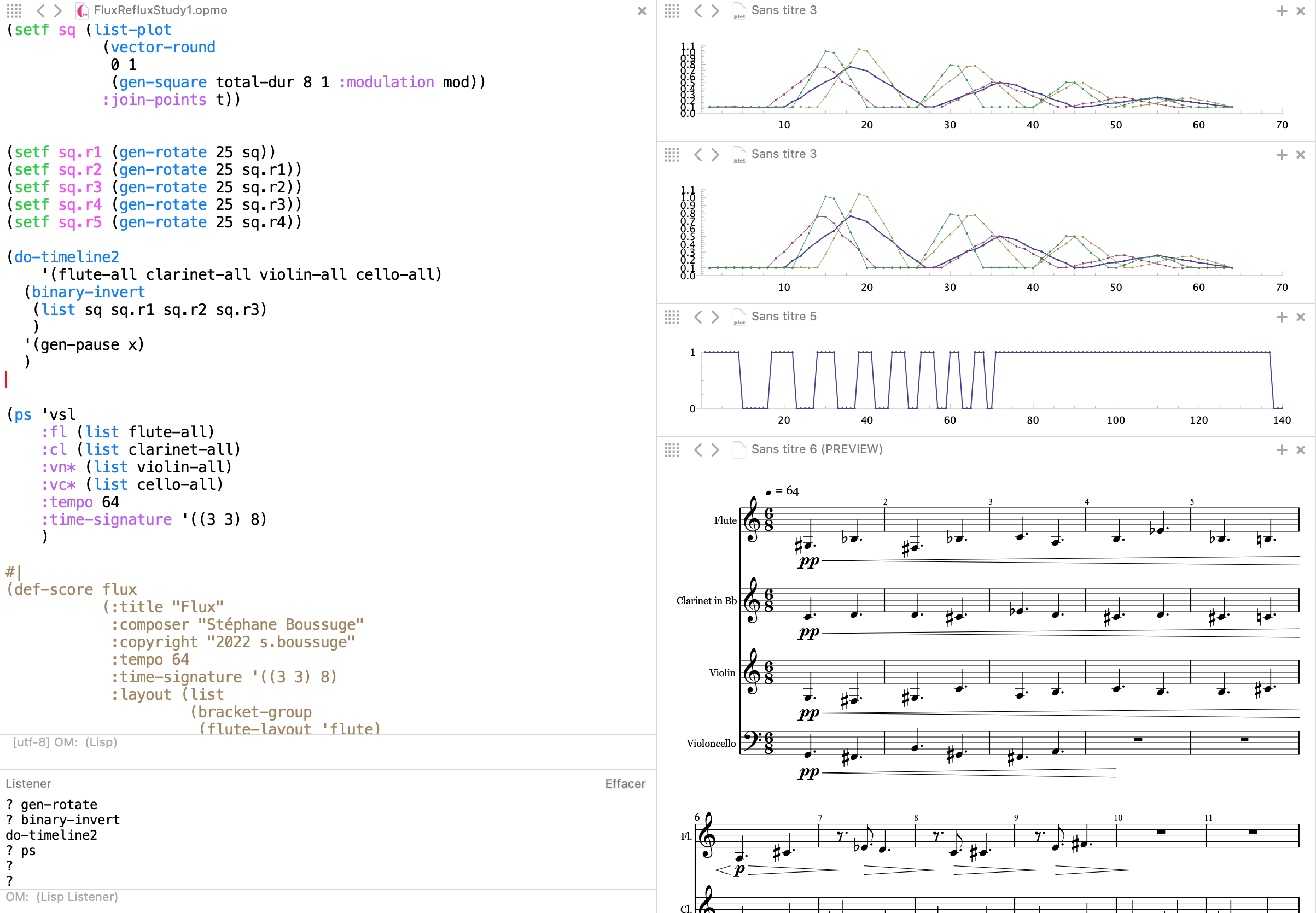
This set of 5 Opusmodus lessons dive into some advanced possibilities of the Opusmodus Music Composition Environment, bringing an exploration of techniques such as Shapes driven tessiture, dynamics and orchestration control, Algorithmic dictum generation for counterpoint, Process driven composition, Spectral harmony exploration and exploration of different pitch distributions across instrumental parts.
This course is for moderate to advanced users of Opusmodus. It is highly recommended to get all the basics of Opusmodus before to start this course.
Course 1: Algorithmic Dictum Generation for Counterpoint
What You Will Learn:
– Understand the structure and utility of counterpoint functions in Opusmodus.
– How to manually create simple dictums, a list of pattern numbers and optional parameters.
– Algorithmic methods for generating lists of pattern numbers and other parameters for Counterpoint function.
– Techniques to assemble the generated material into a usable and readable dictum.
– Apply your algorithmically generated dictum in creating a score section using algorithmically designed patterns.
Course 2: Pitch Distribution across several instrumental parts
What You Will Learn:
– How to manually distribute a pitch row and other pitch material across instrumental parts and understand the underlying logic.
– Techniques for algorithmic distribution from top to bottom and vice versa.
– Apply rhythm and pitch variations for richer musical output.
– Working with various pitch materials like tone rows, Slonimsky patterns, triadic materials, and noise-generated pitch material.
Course 3: Iterated Process Driven Composition
What You Will Learn:
– Introduction to Process-Driven Composition and how to achieve it in Opusmodus.
– Utility function definitions for adding rehearsal marks and other elements automatically to generated scores.
– Building a process iterations to generate several sections of a piece in one pass based on rules.
– How to define your algorithmic process and extract individual instrumental parts.
– Implement tempo changes and time signature adjustments.
Course 4: Shapes/Vector driven control of Tessiture, Dynamic, Pitch and Orchestration.
What You Will Learn:
– Techniques for generating pitch material based on smoothed white-noise.
– Algorithmic rhythm generation and control through provided density-length functions.
– Methods for dynamic markings and ornamentation of repeated notes.
– Assemble sections into a complete piece while applying orchestration techniques.
Course 5: Spectral Harmony Exploration
What You Will Learn:
– Techniques for spectral pitch remapping.
– Methods for vector generation and pitch contour shaping.
– How to import and manipulate spectral data for pitch mapping.
– Techniques for ambitus constraint, frames filtering and chord generation in spectral frames.
– Learn to apply dynamic markings, articulations, and the play-mute system to your composition.
By the end of this course series, you will have a strong understanding of advanced algorithmic composition techniques using Opusmodus. You’ll be equipped with the skills to generate sophisticated compositions using an algorithmic approach, taking advantage of Opusmodus’s rich set of functions and utilities.
